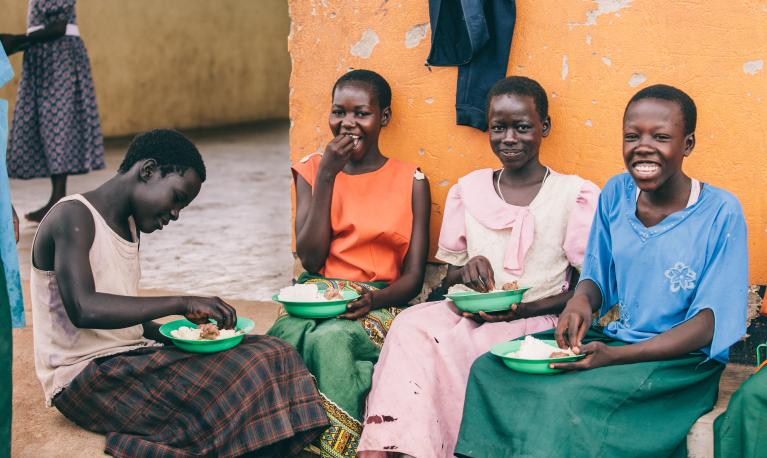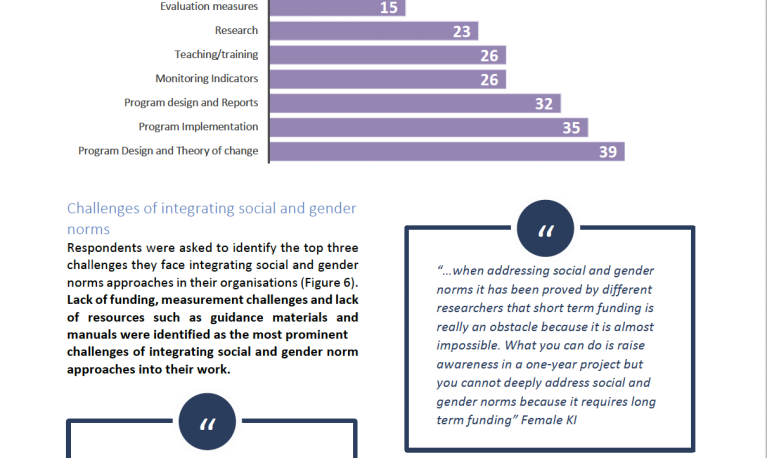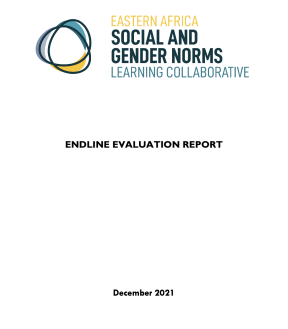- Blog
- 21 July 2022
A journey to transform social and gender norms practices at Kampala International University
- Author: Jonathan Ssekitondo
- Published by: Social Norms Learning Collaborative
On January 14, 2022, the Kampala International University in Tanzania conducted a one-day capacity building workshop on social and gender norms for Lecturers and other working staff from the College of Business Education (CBE), the Mwalimu Nyerere Memorial University and the Dar es Salaam Institute of Technology. Among the participants was Obed Kipelo Nason, an Assistant Lecturer at the Faculty of Education at the Mwalimu Nyerere Memorial Academy, Dar es Salaam.
Kipelo had grown up in a society that is driven by social and gender norms; a society that rewards those who conform with these unwritten rules and harshly punishes all that defy them. Sadly, he never cared to correct these injustices.
“I grew up knowing I had roles as a boy and later as a man, and equally acknowledged that my sisters, and women in my society had roles to play,” he says. “I grew up in the system, and never for one day thought deeper to challenge some of the injustices that I witnessed.”
It was at the workshop that was organized by Joseph Alili, a Lecturer at the Kampala International University in Tanzania, a beneficiary of the small grants program under the Eastern Africa Learning Collaborative (EALC) on Social and Gender Norms Practice and facilitated by Prof. Martin O’’Reilly that Kipelo got to understand the gross impact social and gender norms have towards society, and how they encourage gender inequality and disempowerment of women.
“The workshop shaped my thinking towards Social and Gender Norms inclining on gender bias, gender stereotypes, gender roles and responsibilities. I was drawn at how discriminatory traditions and customs practiced at family and community level are transferred up to higher institutions of learning, which unknowingly, support practice of unaccepted norms on gender equality. For example, girls at the university are encouraged to choose simple courses to pursue, with a few who deviate from this ‘advice’ harshly ridiculed and made to believe that their major purpose is to rush through school, get married and look after families and not waste time at university. This is wrong,” he says.
Since the end of the workshop, Kipelo has taken keen interest, integrating knowledge that he acquired on social and gender norms from the workshop into his lectures under the Gender Construction and Gender Needs Course Unit that he teaches at the university.
“I am thankful to the support rendered to Alili to organize this workshop, and to do more, I am working with the university leadership to introduce a compulsory course unit that addresses social and gender norms in our societies for all students at the university, because these greatly contribute to our ways of life as Tanzanians, and Africans at large, and sadly contribute to gross gender inequalities,” he says.
Kipelo now forms part of the diverse group of members including researchers, implementers, advocates, donors and government representatives from Uganda, Kenya, Tanzania, Ethiopia, Rwanda, Burundi and Democratic Republic of the Congo (DRC) who have established mechanisms for coordination and communication and continue to collaborate with the other regional Learning Collaboratives to support social and gender norms programming, particularly in his area of work – at the Kampala International University in Tanzania.
- Countries / Regions:
- Eastern Africa Region
Related resources
10 May 2021

Report
1 April 2021

Report
1 December 2021
